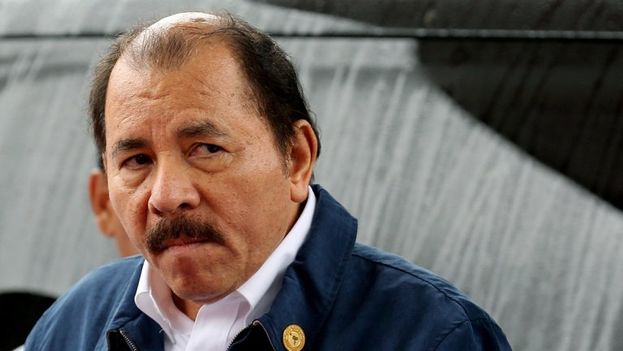
![]() 14ymedio, Carlos Alberto Montaner, Miami, 2 September 2018 – I’m told that Daniel Ortega, the Nicaraguan dictator, ordered a discreet survey to find out what percentage of the country supports his continuing to lead the government. Daniel was enraged when he learned the results: only 9% support him. He is two points below Nicolás Maduro. Those who consider themselves Sandinistas were 25% of the survey, but the Danielistas are a handful that tends to shrink as the crisis intensifies.
14ymedio, Carlos Alberto Montaner, Miami, 2 September 2018 – I’m told that Daniel Ortega, the Nicaraguan dictator, ordered a discreet survey to find out what percentage of the country supports his continuing to lead the government. Daniel was enraged when he learned the results: only 9% support him. He is two points below Nicolás Maduro. Those who consider themselves Sandinistas were 25% of the survey, but the Danielistas are a handful that tends to shrink as the crisis intensifies.
And the crisis is unstoppable. It consists, essentially, in the absence of investments and the paralysis of economic decisions. That is fatal for any government. The good functioning of societies is based on trust, and trust, in turn, depends on the soundness of institutions. You would have to be absolutely crazy to take a dollar to Nicaragua. What sane people do is take their savings to Costa Rica, Panama or Miami, where there are guarantees that they will not be confiscated by the governments of those countries.
Faced with this reaction, stupid governments accuse those who behave rationally and protect their capital of being traitors. But they do something even more serious: they steal the independence of national banks, they intervene in bank deposits, they create so-called corralitos and freeze deposits, they devalue currencies to liquefy debts, they seize the dollars or euros of remittances sent by long-suffering emigrants, and they punish businesspeople by invading their properties or confiscating them, although in the rough hands of the government these properties usually have a very short life before they begin showing losses, a prologue to their ultimate closings.
All this increases uncertainty and distrust. Those who do not have access to dollars acquire valuable pictures, precious stones, gold or anything that retains some international value. I have seen fortunes in postage stamps, spurs for fighting cocks, race horses and even curious relics, false or real, like the fragments of Napoleon’s testicles, carefully amputated by Dr. Francesco Antomarchi in Santa Helena, the Mallorcan doctor who autopsied the corpse and ruled that the emperor died of stomach cancer at age 51.
What is Daniel Ortega’s next move? He knows he has to face the polls, but he is waiting for his image and that of his Government to improve. That will never happen. The problem is that everything he does aggravates and worsens his personal situation and the perception of his regime. The Organization of American States (OAS) ruled that it is a repugnant dictatorship that kills without compassion. The Inter-American Press Association (IAPA), after a visit by its president, reported that the rights of the people are violated without compassion. There is no human way to improve that image, unless he announces his decision to advance the elections and leave the country or stay, if he has the delicate talent that is required to agree on a negotiated solution with the opposition.
Although it seems incredible, the worst is yet to come. And the worst is the nationalization of Nicaragua’s weak productive capacity. I do not know if Daniel still believes in the Cuban model of the eighties, which was in force when he first took power with the Sandinistas, because he was a very ignorant young man, but Cuba, which has lost its compass after 60 years of failures, no longer believes in it and is trying various formulas to bury the Revolution without it being noticed and without losing power, two impossible missions.
If I were a Nicaraguan, along with the departure of Daniel, I would be thinking about what to do to prevent further revolutions and setbacks. A substantial part of what was achieved after the defeat of the Sandinistas in 1990 has gone by the wayside. All of the work undertaken to overcome Nicaragua’s bankruptcy, to straighten out its finances, to end hyperinflation, to fix the wounds and to begin to grow again, has been lost.
It is a shame that every so often a catastrophe like this occurs and overthrows coexistence. Well-functioning nations have remarkable human capital and functioning institutions. They are not governments of special men, but of laws that apply to everyone equally and in which one ascends not by one’s connections but by one’s merits.
Is there a country that has shined a light on this exhausting exercise? Yes. Switzerland did it in 1848, after the liberal revolution. They decided never to export mercenaries, to participate in wars, or to become poor again. They dropped out of stupidity. Today very few people know the name of the president of Switzerland. Nor do they need to.
________________________________
The 14ymedio team is committed to serious journalism that reflects the reality of deep Cuba. Thank you for joining us on this long road. We invite you to continue supporting us, but this time by becoming a member of 14ymedio. Together we can continue to transform journalism in Cuba.
